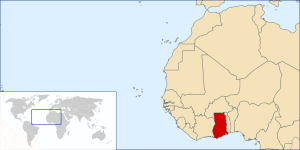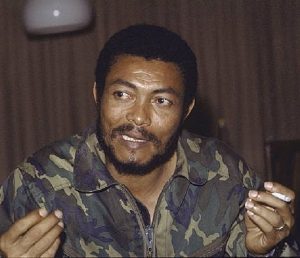 Another short intermezzo, this time on Ghana’s history.
Another short intermezzo, this time on Ghana’s history.
Although the Kingdom of Ghana, one of the early West African empires, was located well north of what was known as the Gold Coast in the colonial era, and had succumbed to its enemies already in the 12th C, the new rulers adopted Ghana as a more suitable name for their country than Gold Coast, upon independence in 1957.
Almost 500 years earlier, in 1471, the Portuguese had arrived on the coast. They established their first trading mission, Fort Elmina, which also helped them defend their monopoly for a while. Yet, incursions by the Dutch, and later the British and the French, made what – on account of its most valuable commodity – had become known as the Gold Coast perhaps the most militarised zone along West Africa. The principal trading partners for the Europeans were the Asante, who, at the same time, were building their own empire, helped by Western guns received in return for slaves. But further Asante expansion clashed with local British allies on the coast, which led to increasing military pressure, and ultimately a series of conquering expeditions between 1874 and 1900. At the end, the British colony of Gold Coast extended considerably inland – but, of course, borders had already been agreed with the other colonial powers, France and Germany.
At the same time, around 1870, cocoa trees were introduced as a cash crop, which was so successful that by the 1920 Gold Coast provided more than half of the world’s cocoa. And at independence Ghana was still the world’s leading producer, as well as producing some 10% of the world’s gold.
Initially, Ghana seemed to follow the standard pattern, or perhaps set the example, as they were the first sub-Saharan colony to gain its independence. A charismatic leader, Kwame Nkrumah, with good ideas becomes increasingly autocratic, suppressing opposition, censoring the press; military coup in 1966, and again in 1972, and then followed by a coup of junior officers overthrowing the generals in 1979. Enter lieutenant Jerry Rawlings. Who two years later staged a second coup, then took ten years to introduce democracy, then won two terms as president Jerry Rawlings – apparently based on genuine popularity, thanks to economic progress -, and then stepped back in 2001, allowing the first peaceful transition of power since independence. The first of many, because since then the country has seen regular democratic elections, and even though the candidates are often the same as before, they do respect the outcome, even if the margins are sometimes very small. So it is possible. Despite the occasional economic downturn, despite challenges to the election results, despite the uncovering of major corruption scandals.
There are lots of different views on why Ghana is so much better off than many of its neighbours, both economically and politically. It is tempting to recognise that the Gold Coast colony, at an early stage, promoted education, thanks to the profitable returns – not in the least the significant gold reserves – that in part benefitted the colony itself. And so created an early elite of intellectuals, who demanded, and were granted, early political influence, already in the 1920s. Gold Coast’s, and by extension Ghana’s, economy was more diversified than that of most surrounding countries, and some of Ghana’s early rulers have taken the right economic decisions, further benefitting the country long-term, even if this challenged short-term acceptance. The Rawlings era, too, was not necessarily bad for the country, economically. I don’t know, but some things clearly seem to have worked better, in Ghana. We are in for a – relatively – comfortable few days, perhaps!
Next: Accra











